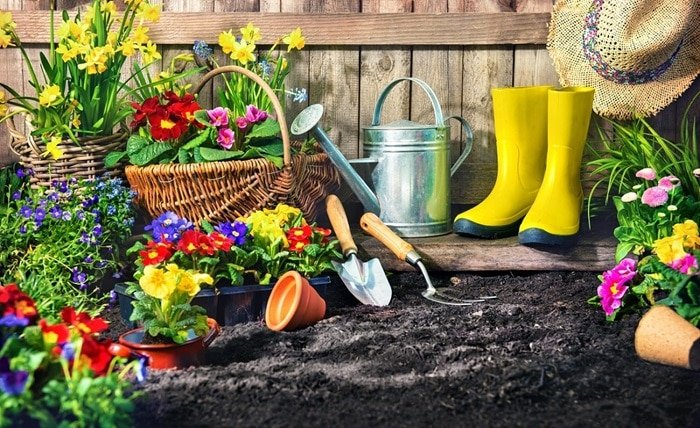Why Planting Is the Perfect Therapy for Stressful Times

Stress is an inevitable part of life. Work pressures, uncertainties, and even the fast pace of modern living can overwhelm us. But amidst this chaos, planting offers a powerful, grounded escape. Engaging with the soil, nurturing seedlings, and watching life bloom profoundly affect our mental and emotional health. Here’s why planting is the perfect therapy for stressful times.
The Healing Power of Nature
Nature has long been heralded as a source of healing. When you plant, you’re not just getting your hands dirty; you’re immersing yourself in nature’s calming presence. Studies consistently show that spending time outdoors or simply interacting with plants can lower cortisol levels—the hormone associated with stress. Planting allows you to connect with the Earth, which has a grounding effect that anchors you to the present moment.
Feeling stressed often makes us hyper-focused on the past or worried about the future. Planting helps break this cycle. When you’re tending to flowers, vegetables, or even trees, you engage all your senses. You touch the soil, smell the fresh greenery, hear birds chirping nearby, and visually track the growth of your efforts. This multi-sensory engagement brings mindfulness, which is incredibly therapeutic.
Planting Promotes Physical Activity
It’s no secret that physical activity has a positive impact on mental health. Planting offers gentle exercise that gets your body moving without the intensity of a workout at the gym. Activities such as digging, watering, and weeding can improve circulation, increase flexibility, and even help with balance when crouching or stretching. More importantly, moderate physical activity triggers the release of endorphins—your body’s natural stress relievers.
What makes planting unique is that it associates effort with tangible results. Unlike other forms of exercise that may feel repetitive, gardening offers the added bonus of seeing your labors bear fruit, whether in the form of a blossoming flower or freshly grown produce.
Sense of Accomplishment
One of the most therapeutic aspects of planting is the sense of accomplishment it provides. Life can often feel like an endless to-do list, and stress arises when tasks feel overwhelming. Planting, however, gives you an achievable goal—something you can nurture and see grow over time. Each stage of growth, from the first sprout to a fully grown plant, serves as a reminder that your efforts make a difference.
This simple act of creating life through planting can be incredibly empowering. It shows us that we can help something thrive, even when our own lives feel out of control. For many, this achievement becomes a source of pride and a boost to self-esteem. Whether you’re tending to organic heirloom seeds in a backyard garden or potted plants on a small balcony, the process brings satisfaction.
Unlocking Calm Through Routine
Planting encourages a routine, and routines can work wonders for reducing stress. Nurturing a plant requires consistency—watering, pruning, and monitoring growth all involve small daily acts. These structured moments offer a break from the unpredictability of daily life, giving your mind something steady and dependable to focus on.
Just ten minutes a day spent tending to plants can create a mental oasis. When you know your actions are contributing to the well-being of a living thing, it also instills a sense of purpose, which is invaluable during particularly stressful periods.
A Connection to the Bigger Picture
Stress often makes us feel isolated, as though we’re shouldering the weight of the world alone. Planting, however, reminds us that we’re part of a larger cycle of life. When you plant seeds and nurture their growth, you’re essentially participating in one of nature’s oldest and most reliable processes.
Watching plants grow over time also fosters patience. Many of us are used to instant gratification, but planting teaches that good things take time. This realization can change how we approach challenges in life, encouraging resilience and long-term thinking.
Cleaner Air, Better Environment
Beyond the personal benefits, planting improves the surrounding environment. Whether in your backyard or an urban space, plants help purify the air, reduce heat, and create habitats for wildlife. Knowing that your efforts contribute to a healthier planet can spark a sense of fulfillment and hope, mitigating feelings of helplessness that often accompany stress.
By planting, you’re not just helping yourself; you’re also giving back to the Earth. This sense of dual benefit—both personal and communal—makes the act profoundly rewarding.
Planting as a Lifelong Therapy
The beauty of planting is that it’s accessible to everyone. No matter your age, skill level, or available space, there’s always a way to start. You don’t need an expansive garden to enjoy the benefits of planting. A windowsill herb garden, a few potted flowers, or experimenting with organic heirloom seeds can be enough to reap the therapeutic rewards.
Planting doesn’t just reduce stress in the short term—it builds habits and skills that can contribute to long-term mental well-being. It’s a practice you can carry throughout life, one that evolves with you and continues to provide comfort even as circumstances change.
Conclusion
Stressful times call for calming, meaningful solutions, and planting offers exactly that. The act of nurturing life, engaging with nature, and dedicating time to something tangible can transform how we cope with life’s challenges. Planting reduces stress, enhances physical health, and provides a profound sense of accomplishment. Whether you’re growing flowers, vegetables, or simply a small corner of greenery, the benefits of planting extend far beyond the soil and reach deep into your mind and soul.





